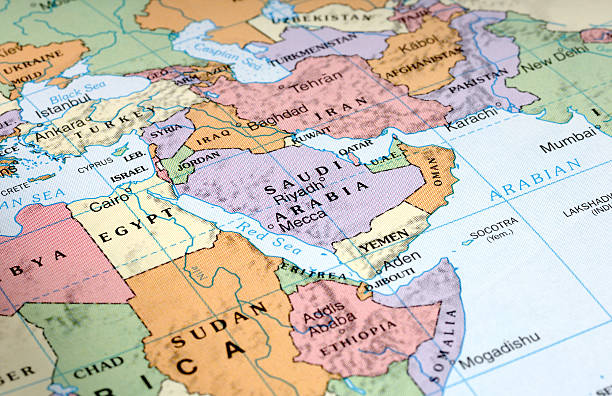With rising but controlled tension over the Kerch Strait incident, a cancelled Trump-Putin meeting, uncertainty regarding U.S.-North Korea dialogue, the war in Yemen, continuing turmoil in the broad Middle East, U.S. withdrawal from the JCPOA, the prospect of a widening China-U.S. trade war with political consequences, the rise of populism, Brexit, yellow-vests in France, poor global governance and lack of leadership, world agenda has become even more complicated.
The Syrian conflict which remained on top for almost a decade no longer seems to be a priority. In earlier years this was about the future of the Assad regime, dialogue between Damascus and the opposition, a new constitution, elections. Now, however, the content appears to be shifting away from these towards a confrontation between the U.S. and the Astana format. The shift can be explained to a good measure by Trump administration’s anti-Iran policy jointly defined with Israel and supported by the Saudi-led coalition. An interrelated issue is Washington’s cooperation with the PYD/YPG.
Guarantors of the Astana format met in Kazakh capital on November 29, 2018. Their Joint Statement (*) had two messages.
Firstly, they rejected all attempts to create new realities on the ground under the pretext of combating terrorism and expressed their determination to stand against separatist agendas aimed at undermining the sovereignty and territorial integrity of Syria as well as the national security of neighbouring countries. This was a message to Washington. It reflects Turkey’s position on the PYD/YPG.
Secondly, they emphasized that under no circumstances should the creation of the Idlib de-escalation area undermine the sovereignty, independence, unity and territorial integrity of the Syrian Arab Republic. This was Moscow’s and Tehran’s message to Ankara to refrain from moves to create a northern enclave under the control of the “moderate opposition”.
The former message is more important for Ankara than the latter. Thus, Turkey stands somewhere in the middle, closer to the Astana format than Washington which would like to pull the plug on it.
Washington says that its cooperation with the PYD/YPG is limited to the defeating Daesh. However, its military presence east of the Euphrates has steadily grown and lately, administration officials have stated that President Trump has agreed to keep U.S. troops in Syria indefinitely; that they would not be withdrawn until all Iranian forces are gone. On Friday, ambassador James Jeffry, U.S. envoy for Syria, was in Ankara. It seems that his talks here did not contribute to the closing of the gap between the two “NATO allies”.
On December 2, Foreign Minister Lavrov stated the following on the sidelines of the G20 summit in Buenos Aires: “… It is becoming obvious to everyone that the developments on the eastern bank of the Euphrates run contrary to the general commitment to Syria’s territorial integrity as sealed in a relevant UN Security Council resolution, although the United States has been trying to present its activities there as a temporary solution… The US activities on the eastern bank of the Euphrates and in other Syrian regions where it has special forces and advisers include playing the Kurdish card. It is a very dangerous game, considering that the Kurdish question is very acute in several countries apart from Syria, such as Iraq, Iran and, obviously, Turkey.”
In April 2016, President Obama defending his decision not to enforce his red-line in Syria told Jeffrey Goldberg of The Atlantic that this was the moment he believed he had finally broken with what he called the “Washington playbook.”
“Where am I controversial? When it comes to the use of military power,” he said. “That is the source of the controversy. There’s a playbook in Washington that presidents are supposed to follow. It’s a playbook that comes out of the foreign-policy establishment. And the playbook prescribes responses to different events, and these responses tend to be militarized responses. Where America is directly threatened, the playbook works. But the playbook can also be a trap that can lead to bad decisions. In the midst of an international challenge like Syria, you get judged harshly if you don’t follow the playbook, even if there are good reasons why it does not apply.” (**)
One may say therefore that for President Obama, Iran’s nuclear program was not a direct threat to the U.S. calling for a military response. His solution to the problem was what Secretary Pompeo has called “the crazy JCPOA”. Developments in Libya were neither a direct threat to the U.S. but, President Obama chose to join the Sarkozy-led intervention. He admitted later that this was a mistake.
So, today’s question is how far Washington would go with its new Iran policy and whether its Syria policy has become a function of the former.
The Trump administration calls Iran world’s largest state sponsor of terrorism. It says that the terror regime threatens Israel through funding of Hizballah and Hamas; continues to fund the Houthis launching missiles into Riyadh and into Dubai. Moreover, two Iranian émigrés living in Belgium and charged were charged in June with plotting to bomb a Paris rally of the opposition Mujahideen-e Khalq. More recently, Iran was accused of plotting an assassination in Denmark.
Washington has put this latest case under the spotlight prompting the New York Times editorial board to ask, “Should not the regime of King Salman and Crown Prince Mohammed bin Salman be held to the same standard as Iran? And if the United States does not impose significant punishment on Saudi Arabia, how can it expect other nations to enforce its sanctions against Iran?”
All regional and global powers rapidly and voluntarily became parties to Syria’s proxy wars. Western intervention in Syria was the second window of opportunity offered to Iran, the first being the 2003 invasion of Iraq. Iran has paid a price, but it appears to be on the winning side for now and the foreseeable future at least. This is not to say that Iran is a benevolent power. There are none.
The answer to the Syrian and Yemeni conflicts is engagement. As proven by the external interventions of the past two decades, there are no military solutions to problems in the Middle East. Paying lip service to this reality while seeking military solutions is the wrong approach. Iran tensions spinning out of control will open the gates of hell for the region and beyond. It will perpetuate the region’s sectarian divide. It will throw Iraq into greater confusion. It will destabilize the Gulf. It will trigger new waves of migration. It will negatively impact transatlantic relations let aside Russia-U.S. relations. It will also undermine Washington’s claim to the world’s moral leadership which the Obama administration tried to restore. It may well be the death warrant for the U.N. system whatever it’s worth.
The negative consequences of such a development for Turkey’s foreign and security policy interests and economic troubles are too obvious to mention.
……………………………………………………………………………………………………..
(*) http://www.mid.ru/en/foreign_policy/news/-/asset_publisher/cKNonkJE02Bw/content/id/3424004
(**) https://www.theatlantic.com/magazine/archive/2016/04/the-obama-doctrine/471525/
Ali Tuygan, Ambassador (Ret’d) and former Undersecretary of the Turkish Foreign Ministry. The article is also published on his blog: https://diplomaticopinion.com/2018/12/08/the-imperative-to-contain-middle-east-conflicts/#more-1269










